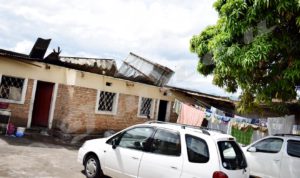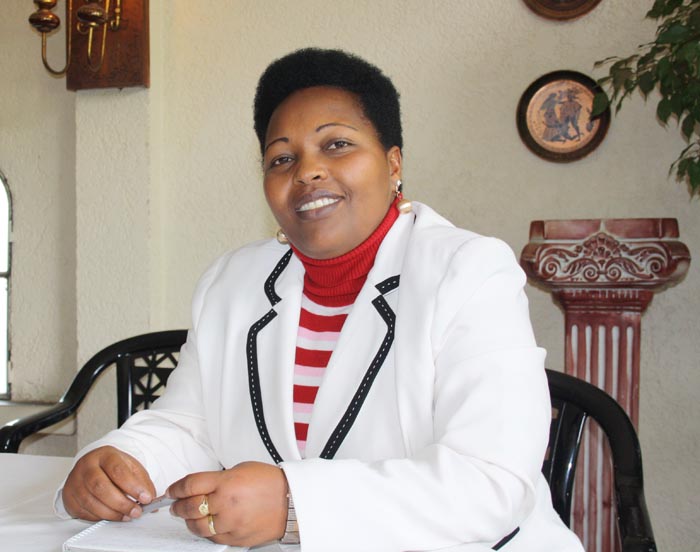The affected residents, who say they are currently sheltered by their neighbours and families, ask for help to rebuild their homes.

“The mango tree protected that home from being completely destroyed”, says Patrice Ndikumasabo.
The fierce wind that gusted across the municipality of Bujumbura destroying homes yesterday night thankfully took no human life.
The wind broke out at night when the majority of residents were already inside their homes, and were therefore at high risk of being harmed by the roofs of their homes.
It was “around 9 pm when the violent wind gusted from nowhere”, says Shabani Gusanga, a resident of Bwiza central area of Bujumbura. He says in a matter of seconds, the wind had lifted and carried away the roof of his sleeping room. “I quickly took my child to the dining room that was still safe. Thankfully none was hurt, except that I was slightly hurt by a brick that fell on my foot as we ran out of the house to ask for a shelter in the neighbourhood”, he says.
Jeanine Iteriteka, 20, who lives in a family of five children and three adults, says they were all inside the home when the wind “terrifyingly broke out and partly destroyed the roof”. She says they were frightened and couldn’t get out. They remained inside the house in a room that was safe.
Patrice Ndikumasabo says “when the wind gusted, I said houses which are not strongly built will be destroyed. Within few minutes, the roof of our neighbour was destroyed”. He is a weather observer at Bujumbura International Airport. He lives in the same compound with Jeanine.
“I thought it was the end of the world. I was extremely terrified”, says Hélène Ndikuriyo, 62. “The way the wind suddenly started was unusual”.
Natural disasters are a real threat with overarching consequences in Burundi nowadays. Drought, floods and the increase of infectious diseases like malaria have recently claimed many lives and worsened the living conditions of many people across the country.
The police say the bad weather of last night damaged, among other things, over 59 homes, three classes and six cars (including three of the Road Police) in Bujumbura. The areas most affected were Bwiza (38 houses), Jabe, Buyenzi and Carama II.
The police report similar events in Gitega central Province, in Mutaho commune where 15 houses were damaged. School principals were forced to send over 1, 000 students back home because their classes were destroyed.
Weather forecasts are not precise…
Anicet Nibaruta, Deputy Director of the Civil Protection Police and Executive Secretary of the Disaster Risk Reduction National Platform, says the platform is assessing the needs of the affected people to “know who needs what?”
Aloys Rurantije says the current extreme weather conditions affecting Burundi had been forecast. He is the Permanent Representative of Burundi to the World Meteorological Organization (WMO) and Director of Hydrometeorology at the Burundi Institute of Geography (IGEBU).
He says the information has been transmitted to humanitarian actors such as the Disaster Risk Reduction National Platform and the Red Cross.
Anicet Nibaruta says the forecasts are not precise. For that, humanitarian actors cannot evacuate people before the events happen. “The forecasts are general. They don’t specify which particular place will be affected at which particular date”. Therefore, humanitarian actions are reactive.















 IWACU Open Data
IWACU Open Data

